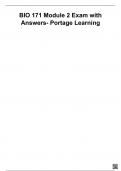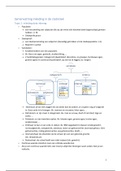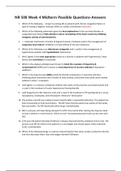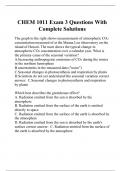Tan-as-u-like Ltd, a manufacturer of UV sun-beds, has developed a new range of
hand held UV tanning devices. Tan-as-u-like currently sells these hand held
devices in France and Italy and now plans to export them into the Swedish
market. However, the Swedish Government has recently proposed two new
pieces of legislation and Tan-as-u-like is concerned that these will impact on
their plans to export to Sweden. The proposed legislation is as follows:
- A requirement that all hand held UV tanning devices carry a safety warning
printed directly onto the device as well as the packaging. The safety warning
should state “UV light can cause skin cancer”.
- A total ban on the TV advertising of sun beds and tanning devices.
Advise Tan-as-u-like Ltd of the legality of the Swedish Government’s action
under EU law.
Answers:
Sweden is an EU Member State so clearly it will be bound by the provisions
of the EU Treaties.
This question concerns the free movement of goods in Union law. Free
movement of goods is one of the fundamental freedoms in European Union as
it is vital for the establishment of an internal market in order to achieve a stable
and efficient economic integration within the member states.
Consequently, Treaty on the Functioning of the European Union (TFEU)
governs the free movement of goods between Member States via Article 30
TFEU and Article 34 TFEU. The former Article is the prohibition on customs duties
and charges having equivalent effect while the latter is the prohibition on
quantitative restrictions (QR) and measure equivalent to quantitative
restrictions (MEQRs).
However, there are circumstances when a national measure which
breaches Article 34 TFEU may be justified. These are laid down in Article 36 TFEU
and also as result of the rule of reason.
Now, let us look into the first proposal to decide whether the suggested
legislation by Swedish Government is legal under the EU law.
, Before we go further, we have to define whether the hand held UV
tanning device is a ‘good’ so that it can be applied to the provisions of the Treaty.
In Commission v Italy, ‘goods’ are defined as products which can be
valued by money, and which are capable, as such, of forming the subject of
commercial transactions. Hence, by applying the definition above, it is clear that
UV tanning devices fall within the meaning of goods and therefore can be
defined by the Treaty.
So far we have concerned, the first proposal is a measure which requires
all the hand held UV tanning devices carry a safety warning printed directly onto
the device as well as the packaging. This measure is related to the goods
themselves. Thus, Tan-as-u-like Ltd has to consider whether the measure
constitutes to QR or MEQRs in order to examine the legality of Swedish
Government’s action.
Under Article 34 TFEU, QR on imports and all MEQRs shall be prohibited
between Member States. Generally, QR are easily recognised. In Geddo v Ente
Nazionale Risi , QR are measures which amount to a total or partial restrain of,
according to the circumstances, imports , exports or goods in transit. The
examples are ban or quota which can be found in the case of R v Henn & Darby.
So, by applying the definition above, we can say that the first proposal does not
constitute to QR as the Swedish rule does not ban the import of these goods nor
does it impose any type of quota.
Then, we have to determine whether the proposed measure is a MEQR.
MEQRs are much more difficult to identify than QR. It was defined in Dassoville
as the Treaty fail to provide the scope of this part and here comes Dassoville
formula providing that all trading rules which are capable of hindering, directly
or indirectly, actually or potentially, intra-Union trade are to be considered as
MEQRs.
In the case of Walter Rau v De Smed, Belgium required all margarine for
retail sale to be cube-shaped. This was held to be a MEQR as it renders the
marketing of those products more difficult or more expensive to whom who
would need to adapt their packaging to comply with the requirement that was
not imposed by their own national legislation.
So, looking back to the first proposed measure, it can be said that it is a
MEQR because any manufacturer of hand held tanning devices that wishes to
import into Sweden will have to conform to this national legislation, which will
, mean their costs are increased and this made the trade more difficult. Hence,
we can say that the first proposal is prima facie in breach of Article 34.
Nevertheless, as what have been mentioned before, Article 34 can be
justified if the measure falls within Article 36 derogations and the rule of reason.
Before we discuss this area, we have to understand that Article 36 has an
exhaustive list of justification and although the rule of reason has several
potential justifications, it only applied to indistinctly applicable measures. In
other words, if the first proposal is a distinctly applicable measure, Swedish
Government can only consider Article 36 TFEU in order to justify its measure.
Accordingly, distinctly applicable measures treat imported and domestic
products unequally by applying only to the imported product while indistinctly
applicable measures apply to both domestically and imported goods.
Consequently, we now know that the proposed measure is indistinctly
applicable as it applies to all hand held tanning devices irrespective of origin.
Therefore, Sweden can resort to both Article 36 TFEU and the rule of reason to
justify the breach of Article 34.
Article 36 TFEU allows Member States to introduce rules which breach
Article 34 TFEU but the breach has to be justified on the grounds of public
morality, public policy or public security; the protection of health and life of
humans, animals or plants. However, such prohibitions shall not constitute to a
means of arbitrary discrimination or a disguised restriction on trade between
Member States.
On the other hand, the development of the rule of reason is the expanded
list of the Article 36 TFEU where the breach may only be recognised if it is
necessary to satisfy the mandatory requirements relating in particular to the
effectiveness of fiscal supervision, the protection of public health, the fairness
of commercial transactions and the defence of the consumer. Moreover, the list
of the mandatory requirements has been extended by the ECJ nowadays.
To summarize, in order to justify a breach, Sweden has to show that it is
necessary in order to attain one or more objectives mentioned in Article 36 or
the mandatory requirements and that it is in conformity with the principle of
proportionality.
As a result, by looking back to the first proposed measure, Swedish
Government could have argued that its measure falls within the ground of the






